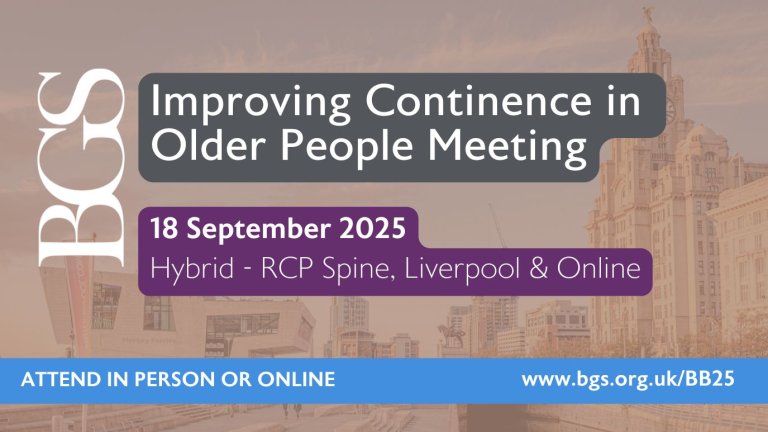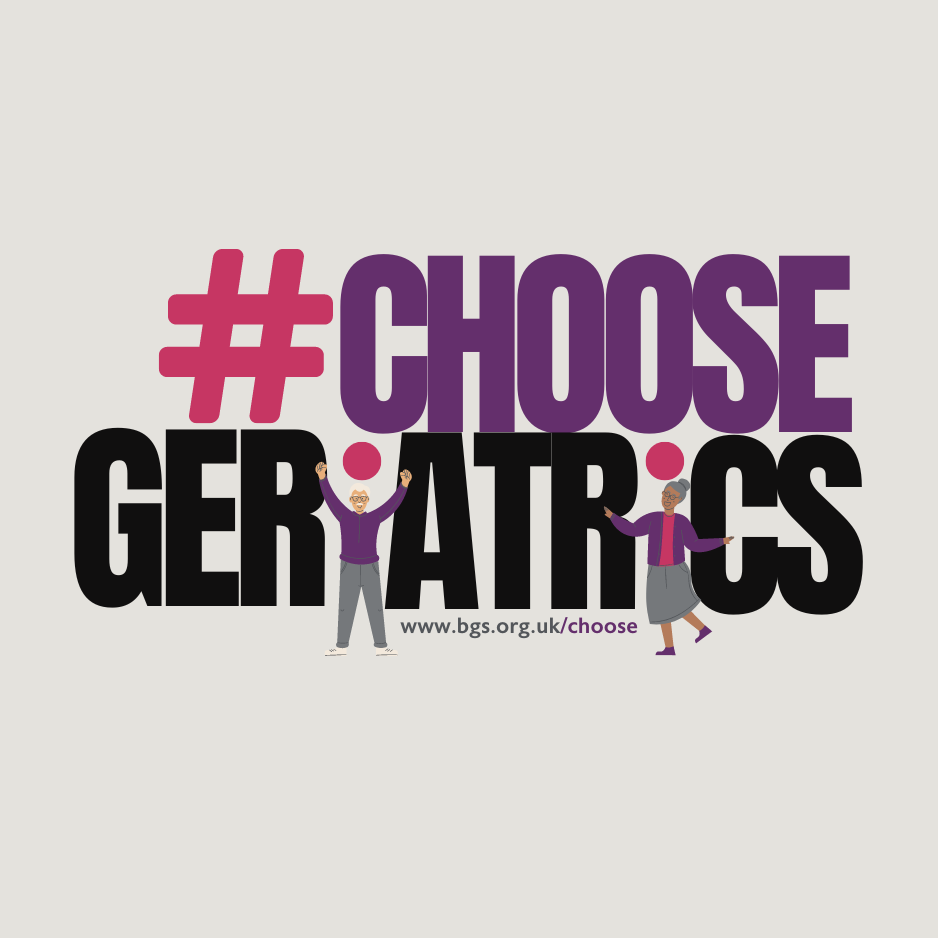Dr Lauren Dunlop is an ST6 in Geriatric Medicine at Aberdeen Royal Infirmary, training with a special interest in bladder and bowel health. She is the trainee representative for the BGS Bladder and Bowel Health Special Interest Group (SIG).
Following on from World Continence Week, I would like to issue a rallying cry for geriatric medicine trainees to choose bladder and bowel health as a special interest. Why? My own reason for choosing it was initially very simple: as far as I was aware, nobody else in Scotland was doing it. The assumption in our department had therefore tended to be that it wasn’t a viable option. I’m not a contrarian, but I do enjoy a niche. Not, of course, that bladders and bowels can be thought of as a particularly niche area. Most of us have them, we spend much of our days keenly aware of their functions and malfunctions, and we live in the hope that they can be relied upon to continue smoothly functioning throughout all our activities, responsibilities and adventures. We as humans are united by the near-unanimous desire to toilet in peace and comfort, and losing the ability to do so can be at best annoying and at worst dehumanising. Most bladder and bowel complaints are not inevitable consequences of ageing, and therefore older people deserve access to Comprehensive Geriatric Assessment (CGA) that is truly comprehensive - this includes an assessment of their bladder and bowel health by someone who is informed and interested. With this in mind, my reasons for my choice have only become more enthusiastic. By giving attention to a person’s continence, you are considering their independence, their dignity and their humanity. What could be more important?
“But,” you hypothetically interject, “it’s not very glamorous, is it?” In response I’d ask you to consider when else you can make such a tangible impact on a person’s quality of life through simple interventions. Who needs glamour when you have glycerin suppositories and vaginal oestrogen? Plus, if you enjoy tourism, you’ll relish the opportunities to hop around corners of the hospital that are likely exotic and long-forgotten to physician trainees. My weeks include time spent with gynaecologists, urologists, colorectal surgeons, physiotherapists, nurse specialists and more. ‘Glamour’ and ‘interdisciplinary working’ may not be direct synonyms, but the breadth of experience and wealth of knowledge and management options offered by each specialty are, in my humble opinion, really cool. I have found nothing but warm welcomes and an enthusiasm for more joint working in the future - it seems to be a truth universally acknowledged that older people with frailty benefit from the involvement of geriatricians. Plus, you’ll definitely get bladder scanning signed off.
So, we’ve established that bladder and bowel health is basically the most important and also coolest special interest. So why isn’t it a more popular choice? Speaking for the situation here in Scotland, the issue has largely been concerns about a lack of training opportunities. It’s difficult to learn how to do a job in isolation. Luckily, our world is an interconnected one. We have transport and we have video calls, and the experience and interest are out there. Plus, as I mentioned above, a huge amount of the training comes from other disciplines and specialties, all or most of which will be represented wherever you are. At the moment, there is one consultant geriatrician in Scotland who runs a specialist bladder and bowel clinic. Every time somebody trains in this area, there will be the potential for one more, and with them more training options for future trainees. I’m choosing to think of the current service gap as a service opportunity and am excited by the prospect of developing our geriatric medicine service to more comprehensively serve the needs of our patients. I would strongly encourage any fellow trainees who are on the fence about choosing a special interest to consider joining me. It would be fantastic to see future trainees have more local specialists to learn from, and to see bladder and bowel health gain the emphasis within our services it merits. All this to say…choose continence!



